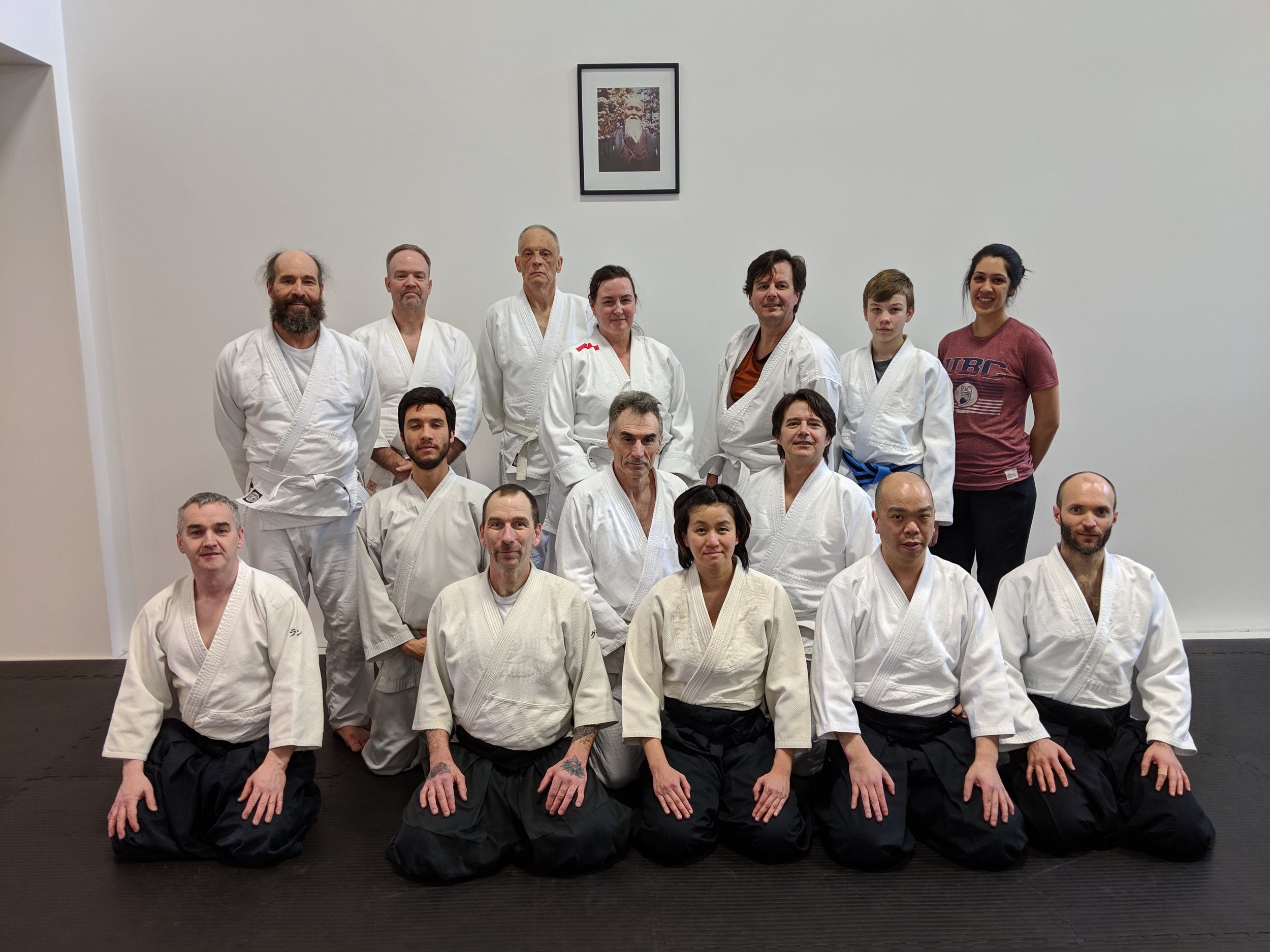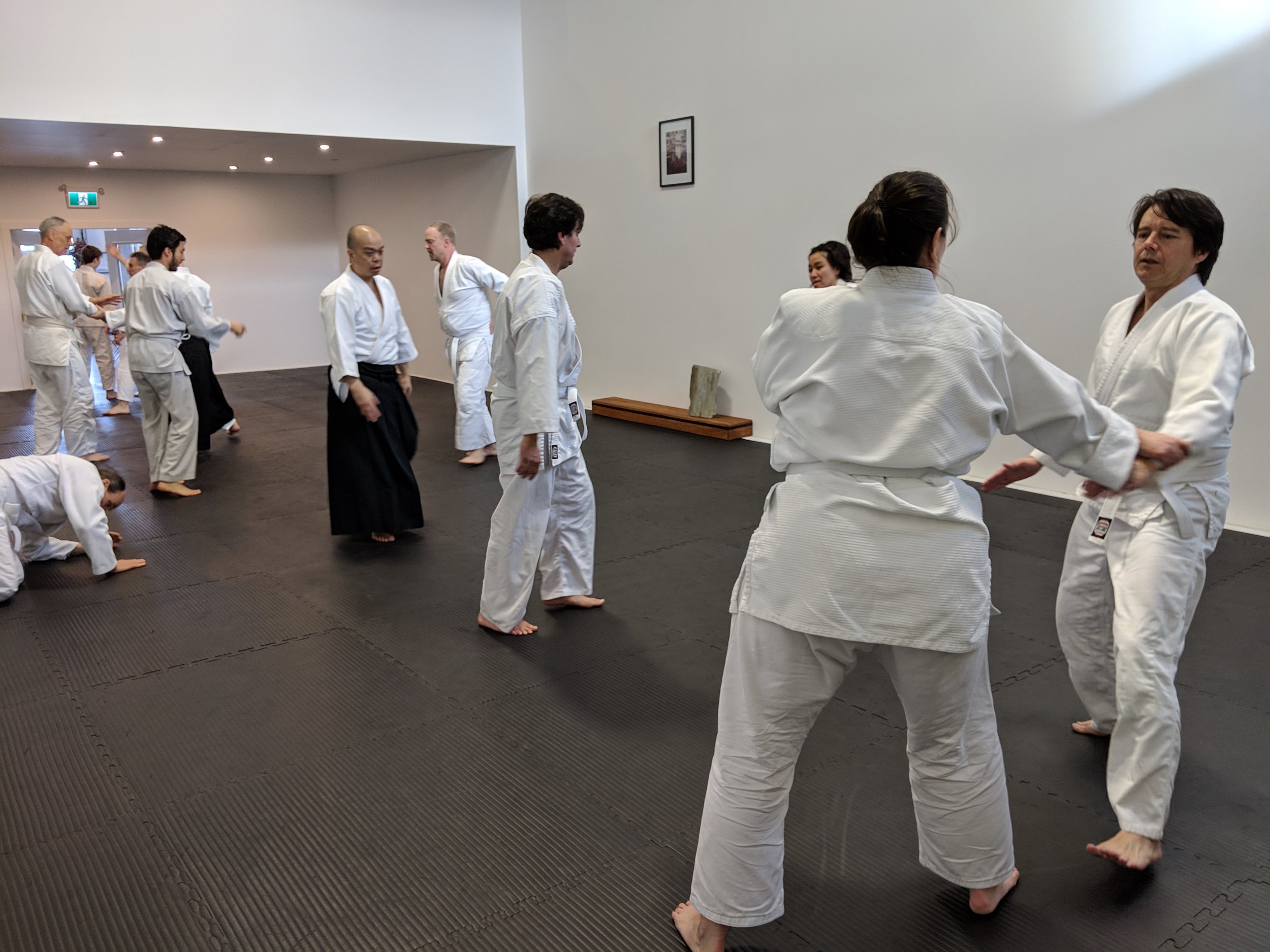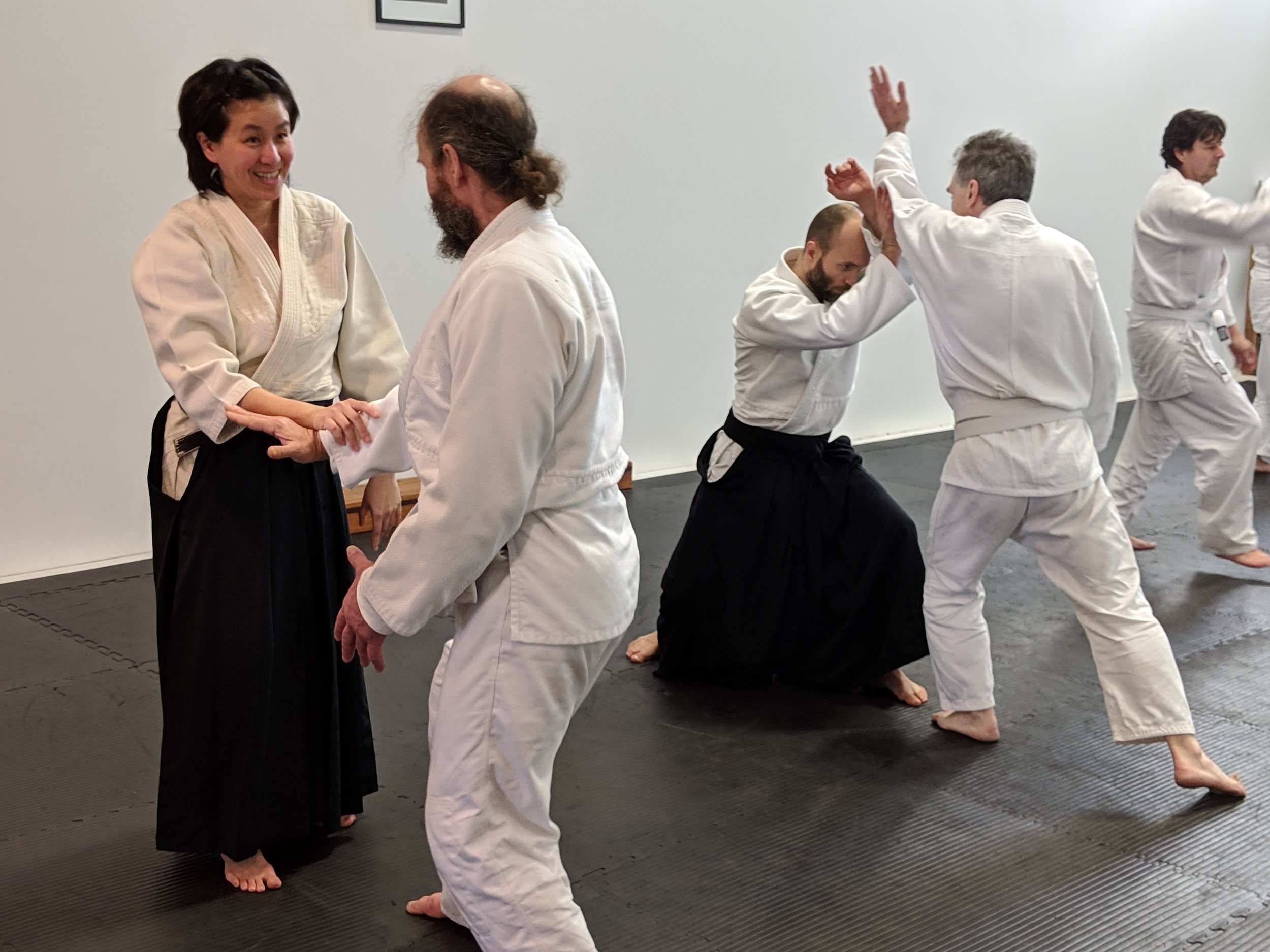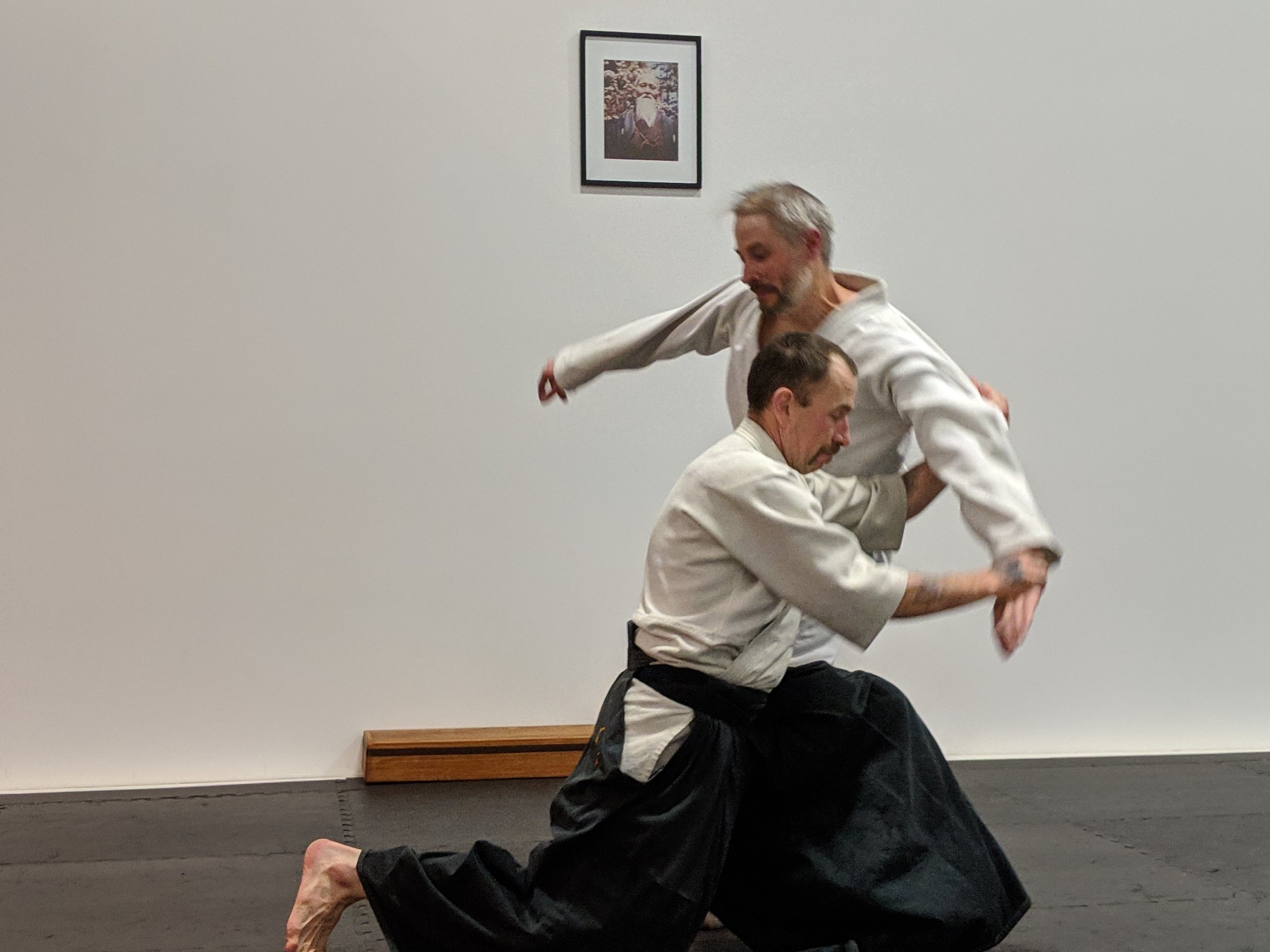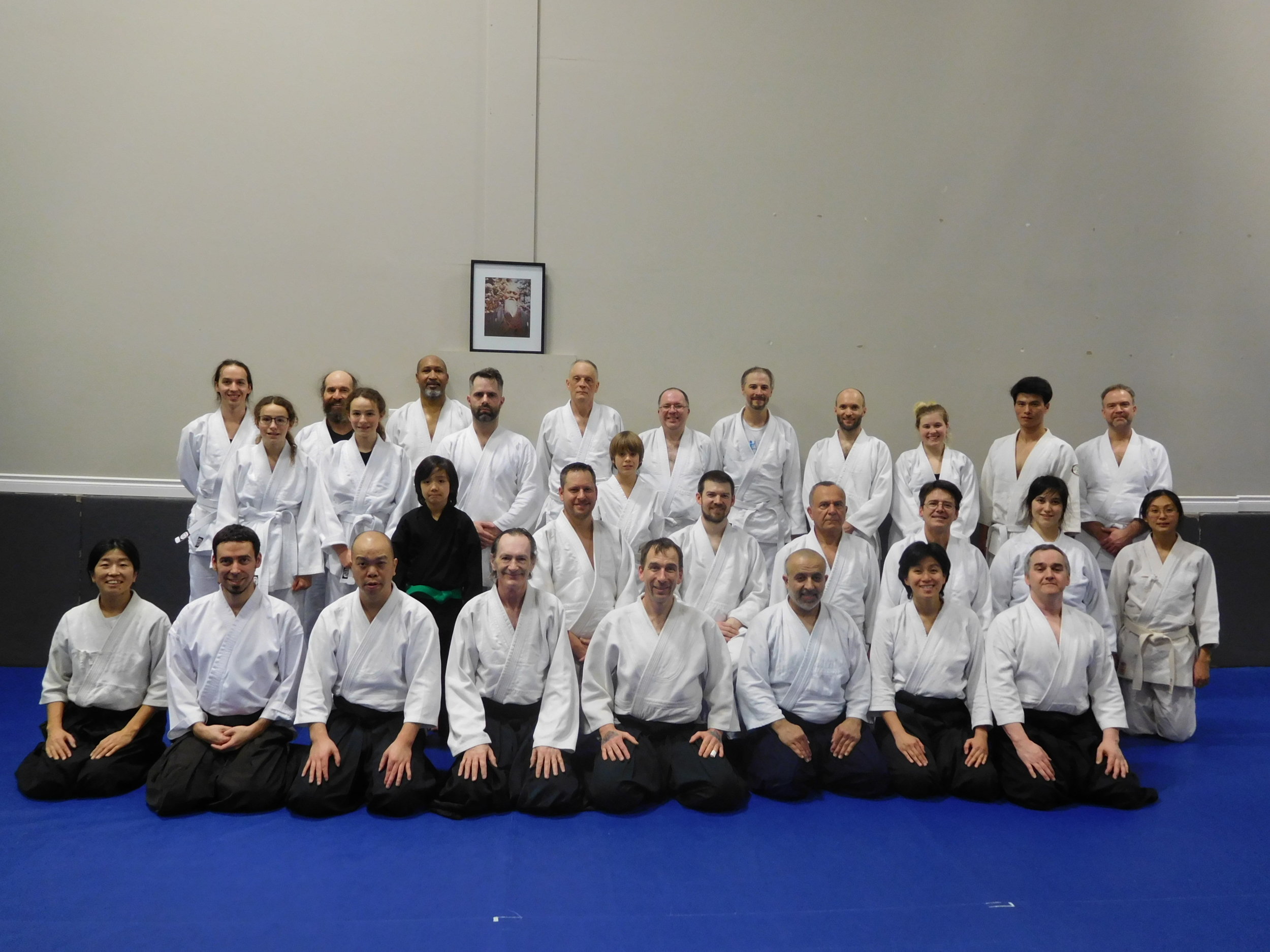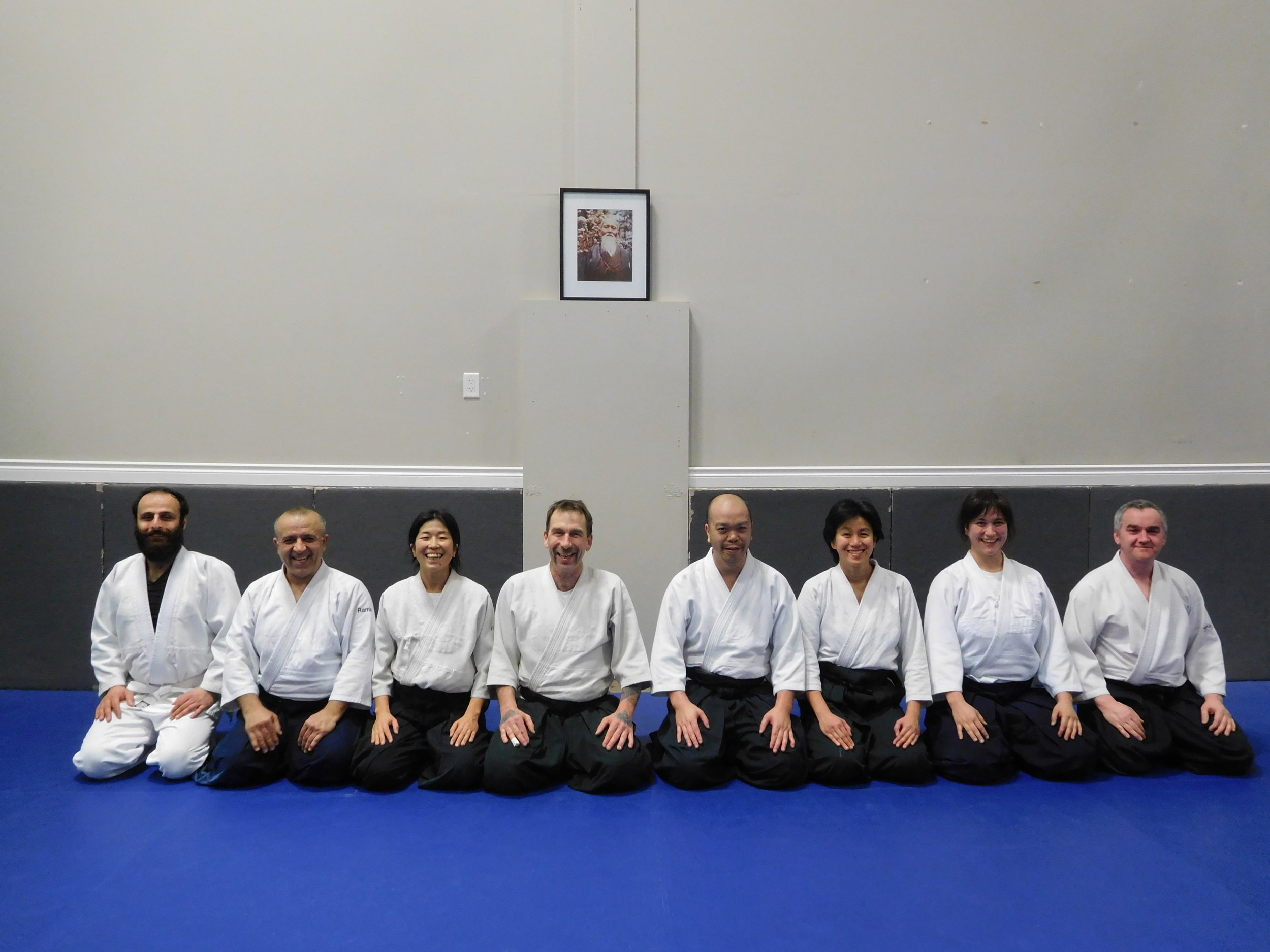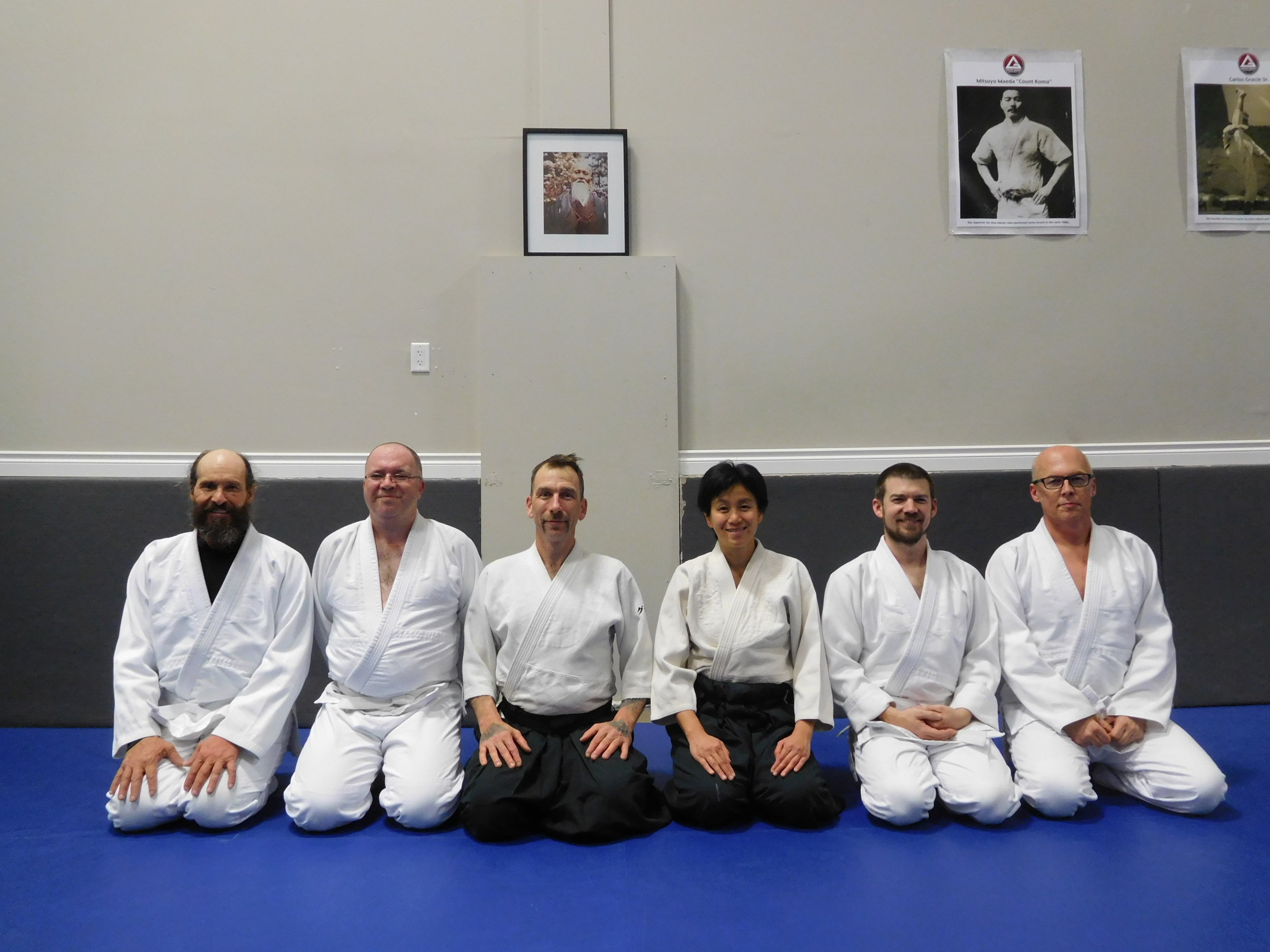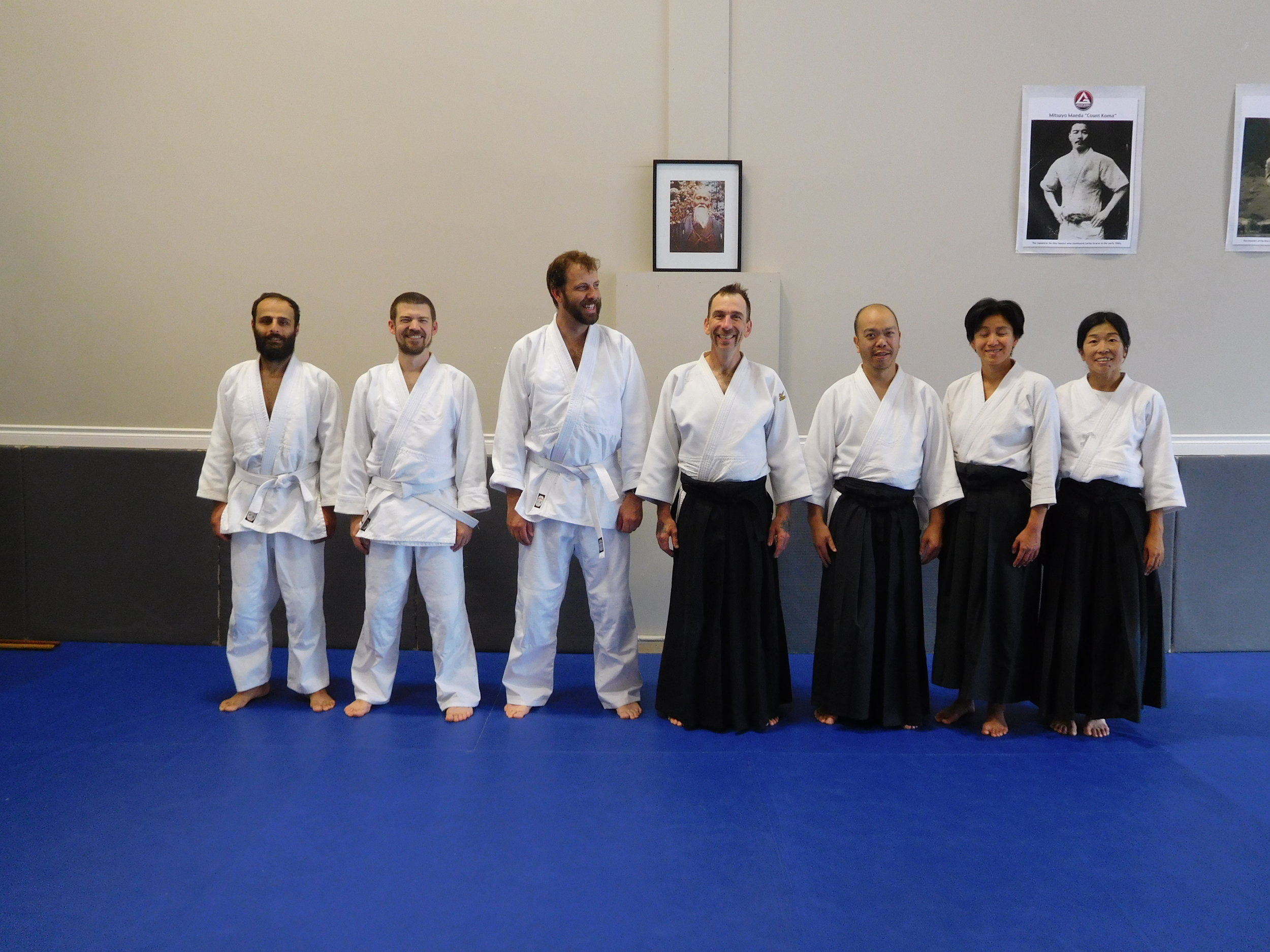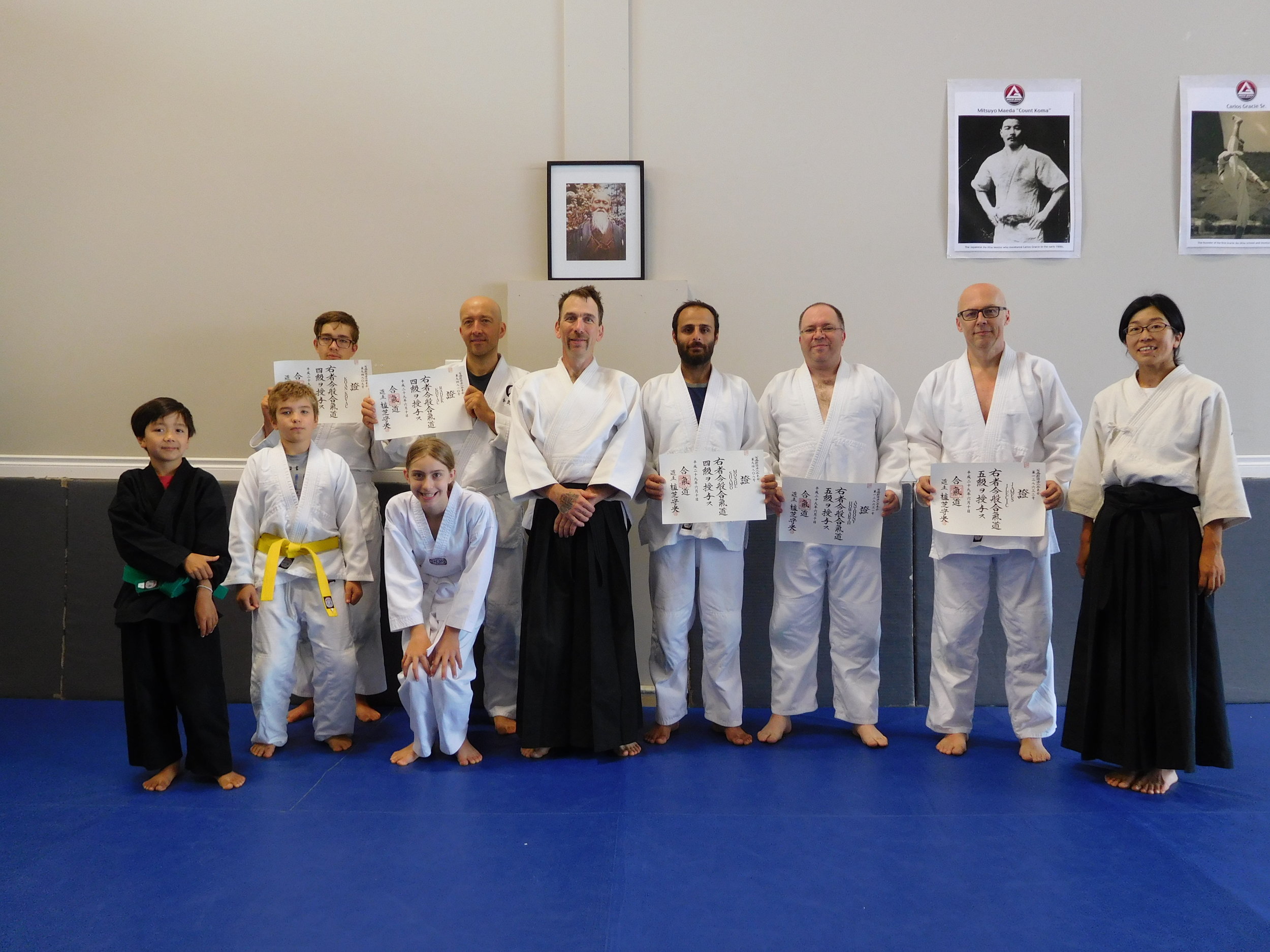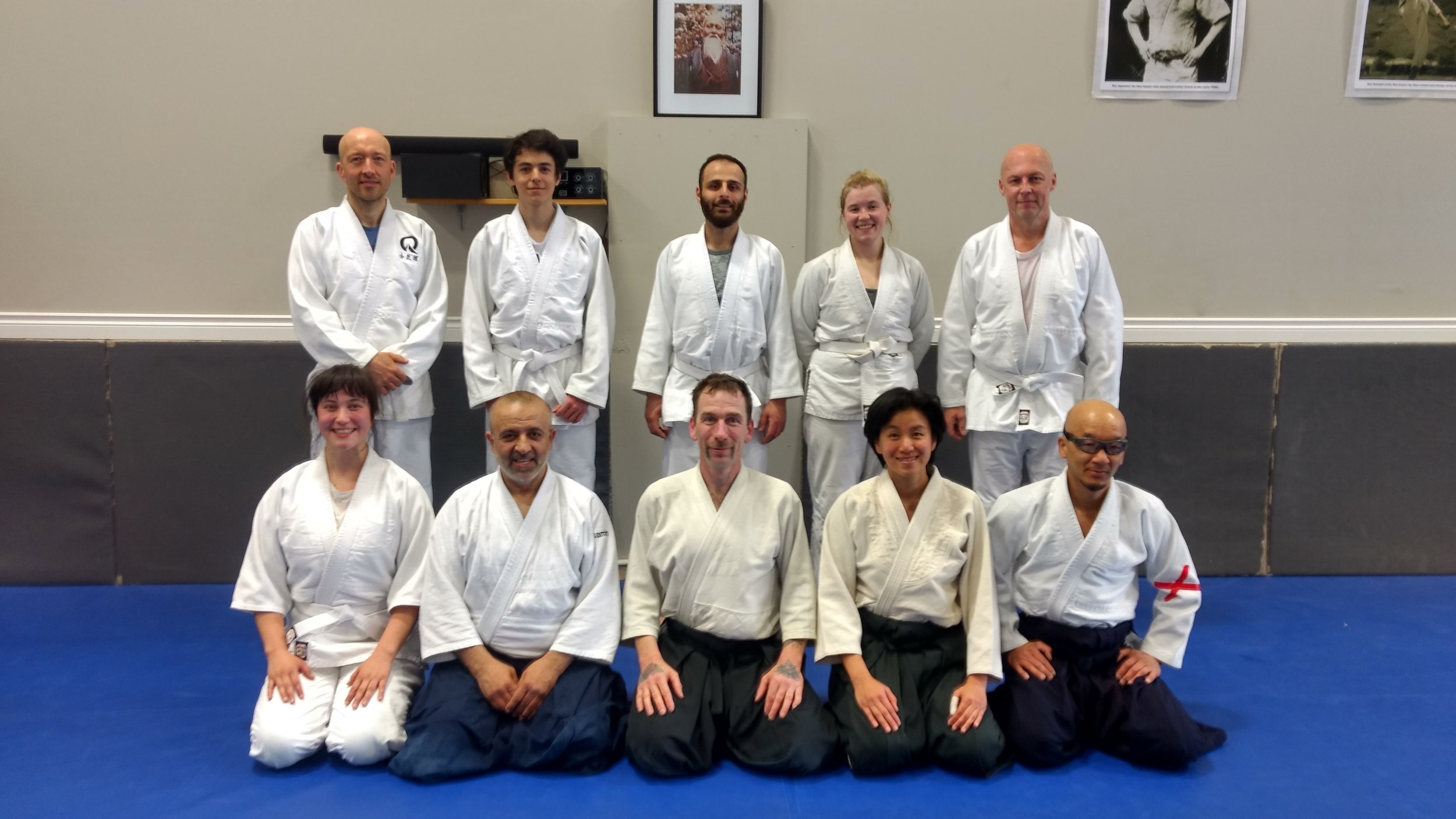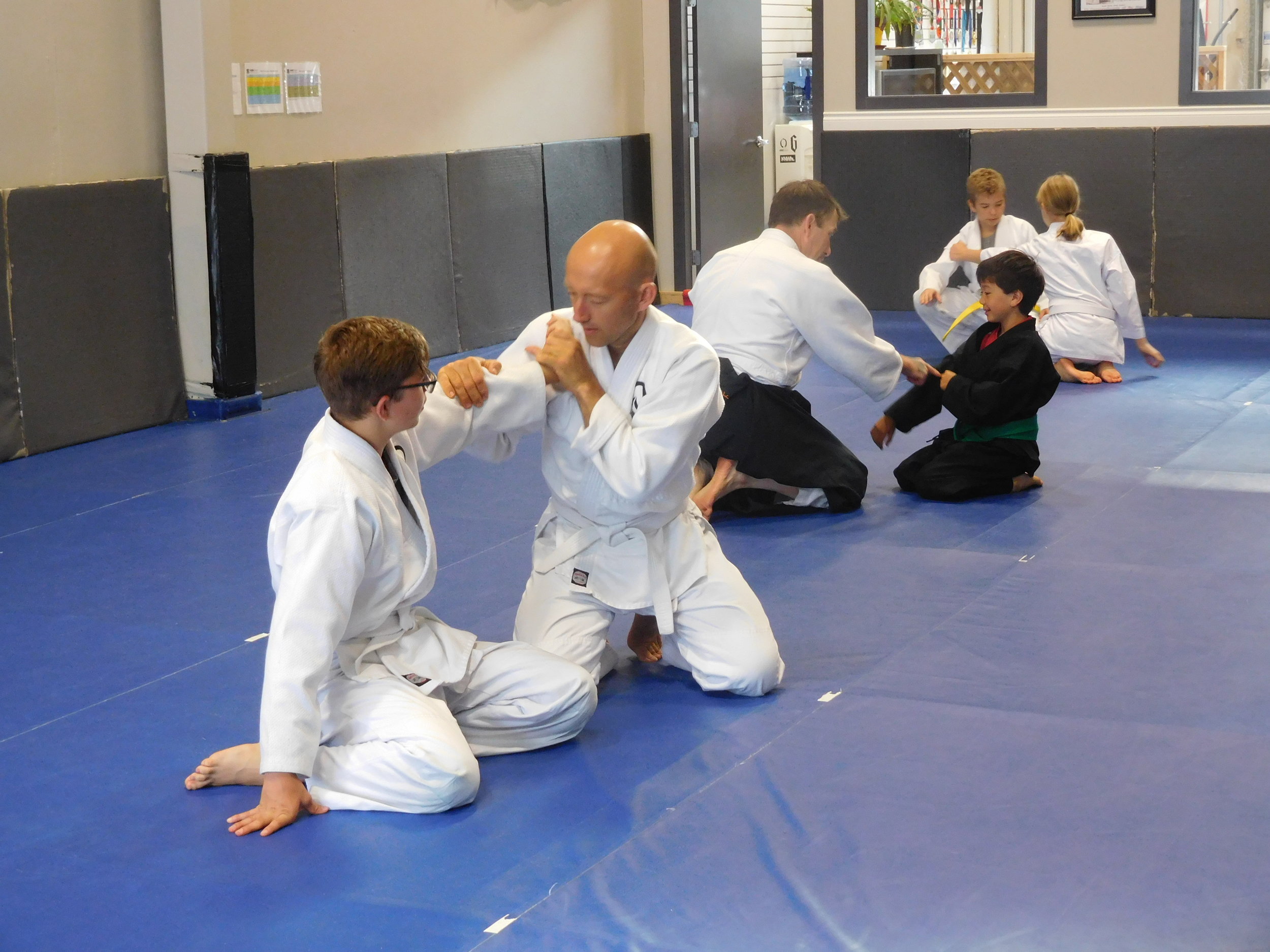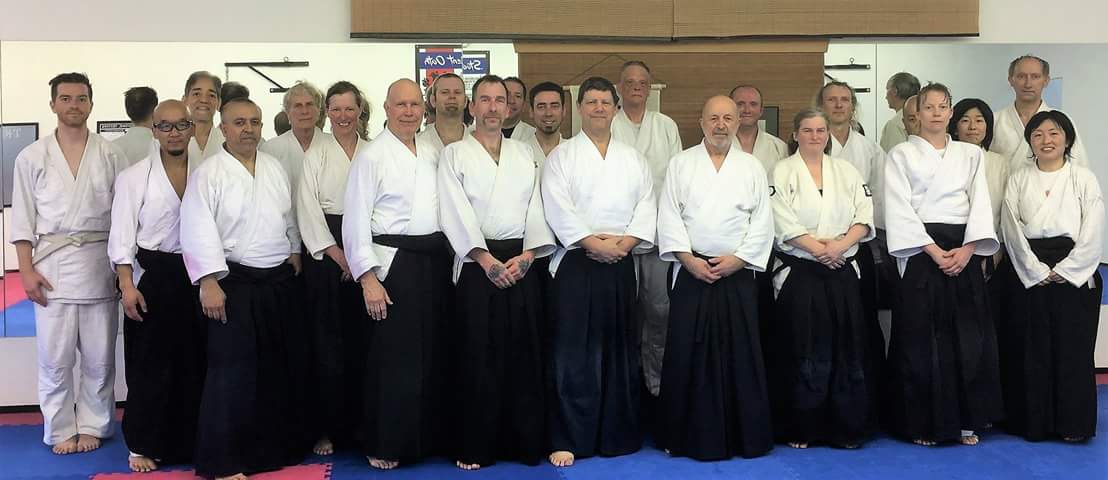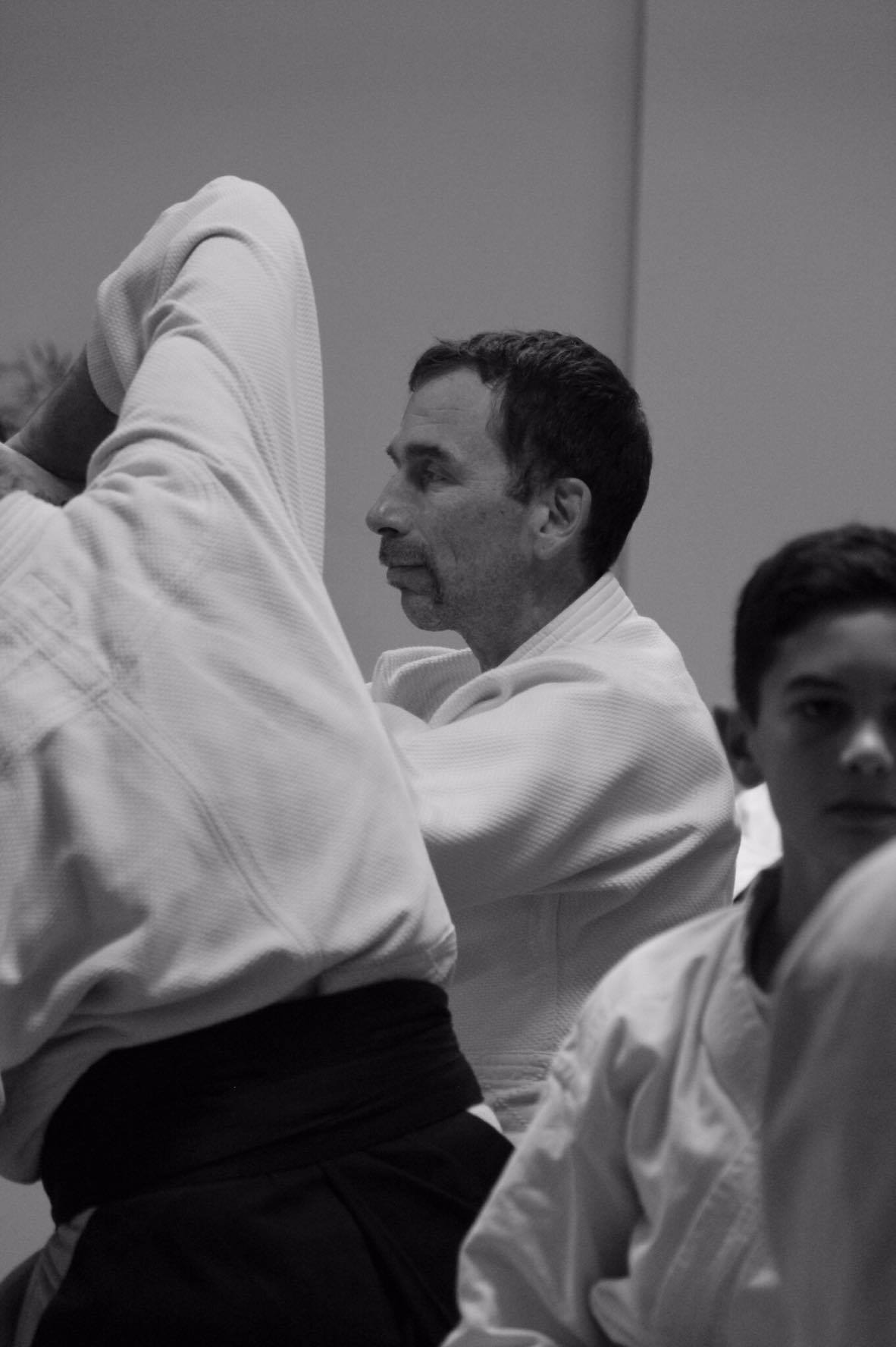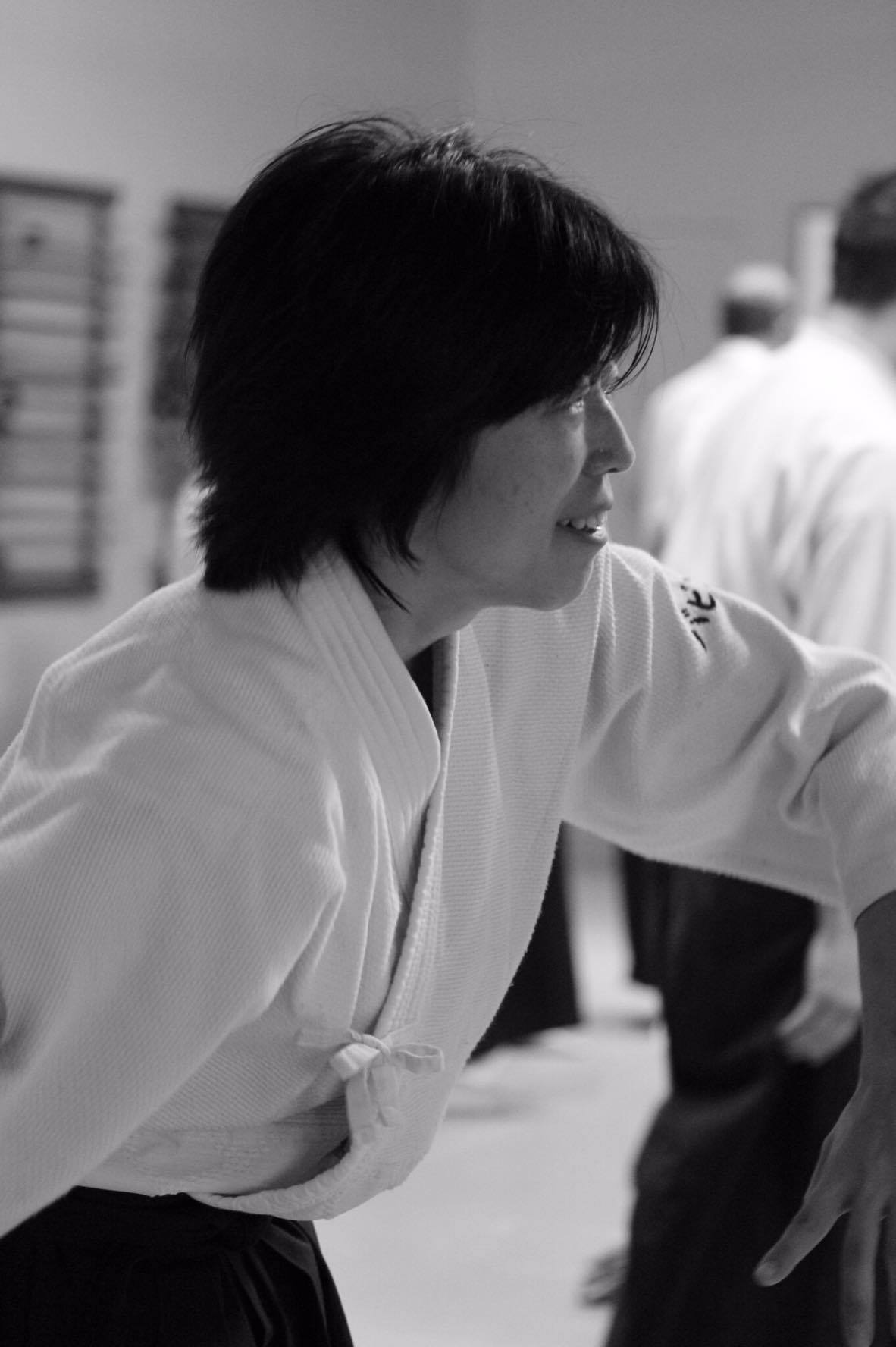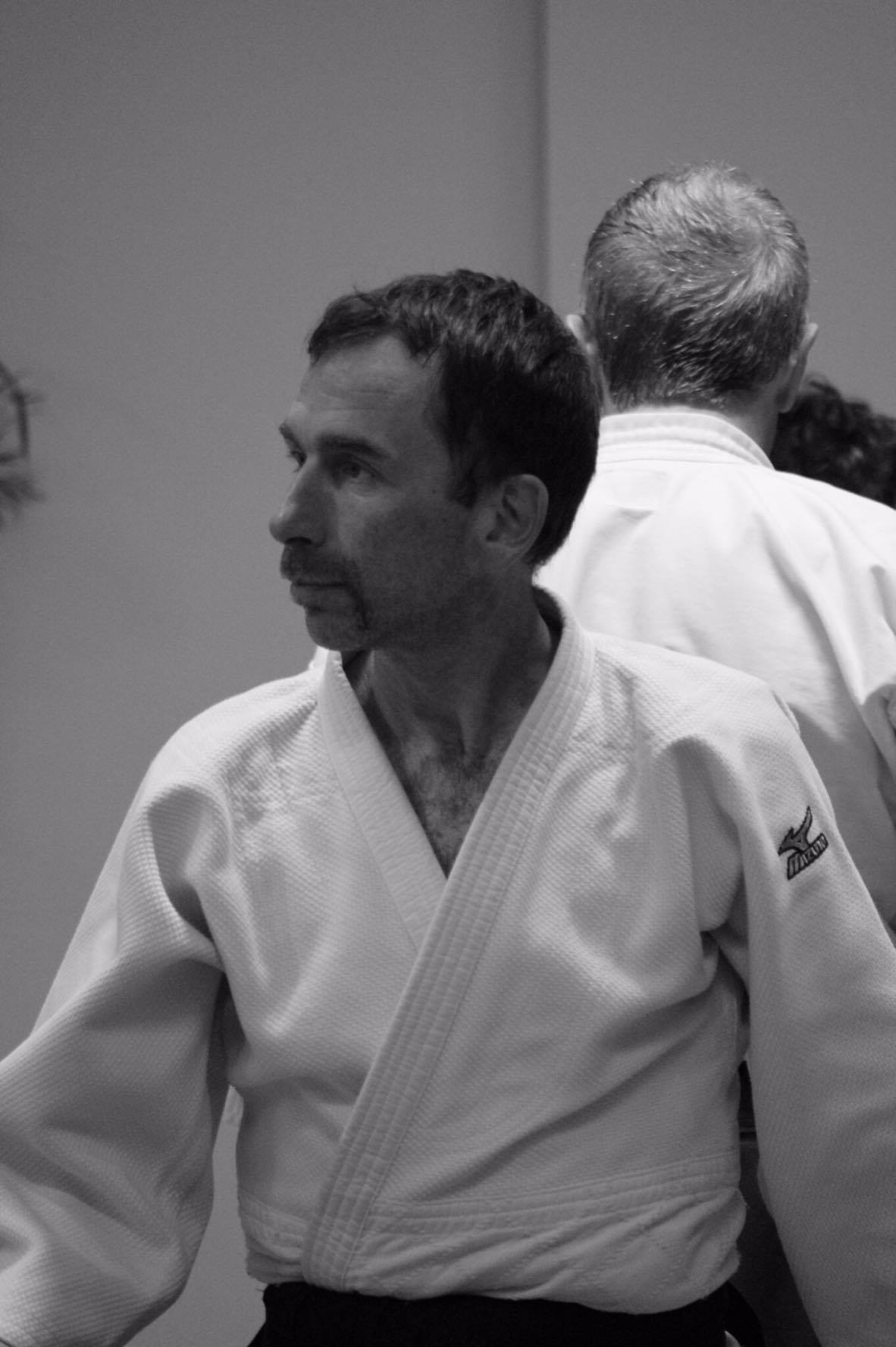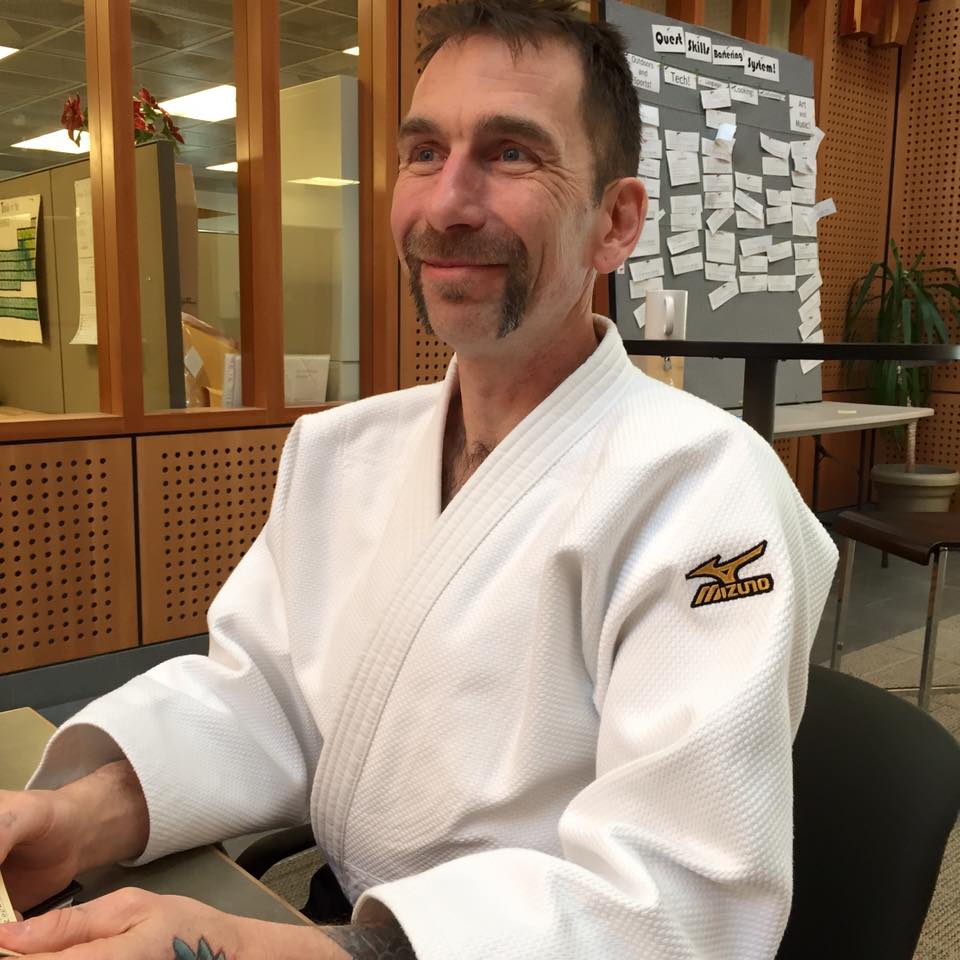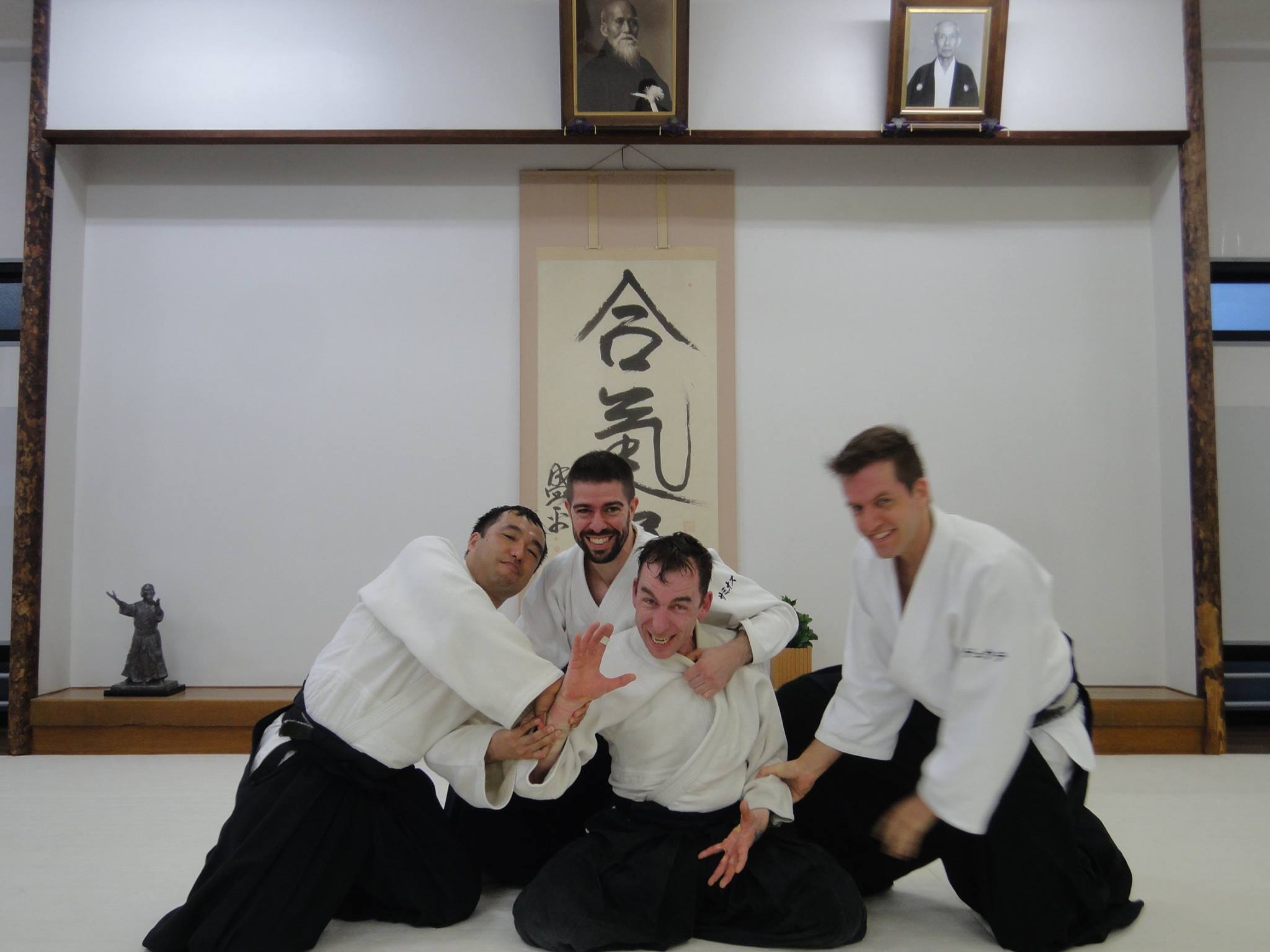Aikido is a powerful Japanese martial art that is defensive in nature. It is non-competitive and non-aggressive. It does not meet force with resistance or brute strength; instead it redirects an aggressor’s force with well-timed, flowing, circular movements that lead an attacker off their center of balance. Rather than relying on our strength to protect us, the attacker’s own motions and momentum are utilized to compromise their balance and stability. Once they are off-balance they are subdued or dispensed with by using any of a large variety of joint locks, pins or throws.
THE ORIGINS OF AIKIDO
Modern Aikido evolved from Daito-Ryu Aikijujutsu which is said to have originated around 900 AD. It was passed down through the generations, though only to direct descendants of the Japanese royal family, until Sokaku Takeda began to teach the art outside of the family in the mid-19th century.
One of Takeda’s most outstanding student was a small man named Morihei Ueshiba. Ueshiba augmented Daito-Ryu Aikijujutsu with the essentials of other traditional martial arts he had mastered, and with techniques of his own, thereby founding ‘Aikido’ in the early 20th century.
Aikido is now taught nationally in Japanese schools, the Tokyo Police Department, as well as to the general public worldwide.
It is the cooperative development of both physical and mental dexterity. But there is also an incredibly powerful and practical self-defense side of Aikido that is available to all, irrespective of size, age, gender, race or culture.
OUR PROGRAM GOALS
1. Understand why size and strength don't matter. Aikido techniques are based on precision and timing. They allow a person of any size and strength to maximize their own power while at the same time turn their opponents power against them.
2. Build mind-body-spirit integration. Connection is key to aikido. Through regular training and diligence, students develop a deep sense of connection between their own mind and body, which feeds the spirit. Our sense of internal connection fosters self-awareness, self-confidence and self-respect. Students also learn the importance of connection with their training partners, which strengthens respect for others and the world we live in. Aikido is a form of embodied peacemaking, training the mind, body and spirit to act in unison, even in the face of diversity.
3. Support health and well-being. Aikido can be practiced by anyone of any age and background, not because it is 'easy' but because it is 'smart'. Aikido practice increases awareness of your physical and mental self. Techniques taught in the dojo are comprised of physical movements that are not harmful to the body but improve fitness, flexibility and reaction. Aikido aims to bring together people of the world to create harmony and Aikidaily is a living example of this goal.
4. Learn techniques used by security professionals, the military, and the police. Aikido techniques have been developed to control rather than harm. In many parts of the world aikido is taught to those in the military, police and within the security profession where the goal is compliance not injury.
5. Practice a traditional martial art. The style of martial art taught at Aikidaily International Academy has its roots in the Samurai period of Japan. The techniques and traditions have been passed down and maintained through generations, including from headquarter teachers in Japan to Grant Babin Sensei, then to their students. What is taught at Aikidaily International Academy is more than applying techniques, it is a way to cultivate the noble warrior spirit.
What can I expect in the adult's class?
Our adult classes focus on proper execution of techniques. After a warm up and some basic body movement exercises, the instructor will demonstrate a technique after which participants pair up together and try to execute the same techniques. The instructor will give guidance as the partners work together and help the students refine their technique to make them more effective. Throughout the class students will have the opportunity to work on several techniques in this manner.
There are no competitions or sparing in Aikido. The benefits of practicing in this manner are that it allows partners to stay focused on one objective, reduces the risk of injury and creates a cooperative atmosphere. Some of the benefits you will get from practicing with us are: an increase in your ability to focus, improved overall fitness and flexibility.
At Aikidaily, we welcome people of any age, gender or ability. Students are encouraged to work at their own pace and push themselves without over extending themselves. Prospective students are welcome to watch any class, and participate in up to 3 classes before committing to becoming a member. No appointments are necessary for trial classes.
PSA: Aikidaily ensures a safe training environment for all of our neighbors. We do not tolerate discrimination of any form in our dojo. We understand that accessing martial arts training in a safe environment is often difficult for marginalized community members. If you have questions regarding our commitments to providing a safe training space for BIPOC, LGBTQIA+ and women communities, please reach out to us.
See Aikido in Action!


